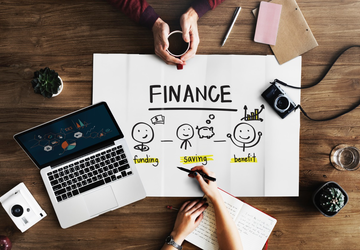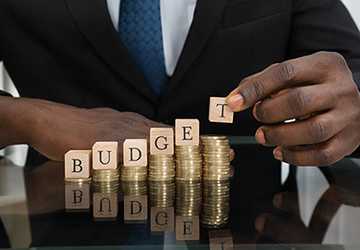Start Early: The Hidden Rules of Student Loan Repayment
Time is of the essence when it comes to paying off your student loans. The longer you wait, the more interest you'll accumulate and the harder it will be to get out of the financial hole you're in. Contrary to popular belief, the path to debt freedom should begin before graduation. Yes, you are not mistaken. You can pay in small installments while you're still in school. The idea is to reduce the principal amount as much as possible so that subsequent interest is calculated on a lower amount. Now, these payments can be as small as you can afford; even a little goes a long way over time.

Choosing the right repayment plan: Customize your approach
If there's one piece of advice that stands out among the tips for paying off your student loans, it's this: There is no one-size-fits-all solution. Federal student loans offer a variety of repayment plans, from standard repayment plans to graduated repayment plans to income-driven repayment plans. Understanding the nuances of each option can help you choose the solution that best suits your financial situation. If you have a high-paying job right out of college, then the Standard Plan or the Step-by-Step Plan may be right for you. On the other hand, if you're still looking for work or working a low-wage job, income-based plans can help by adjusting your monthly payments based on your income and family size.
Extra payments and side hustles: Accelerators for dealing with student debt
Here's a little-discussed but very effective tip for dealing with student debt: make extra payments. If your repayment plan allows it, you can significantly reduce the interest you accrue by making repayments every two weeks instead of monthly. Also, if you receive a tax refund or job bonus, consider using some of it as a one-time payment on your loan. Additionally, it is possible to create an additional source of income through a side hustle aimed at paying off the loan. Whether it's freelancing, a part-time job, or even making passive income through investing, extra money can accelerate your path to debt freedom.
Mindfulness and Money: An Unconventional Partnership
A lesser-known but equally important aspect of dealing with student debt is our psychological relationship with money. This often overlooked emotional connection can hinder or accelerate our path to debt freedom. Debt can be emotionally draining and lead to poor financial decisions. By adopting a mindset that aligns with your long-term financial goals, you can make smarter decisions. Whether you're trying to avoid unnecessary spending or setting up an automatic savings account specifically for loan repayments, the right mindset can be your weapon in managing your debt.
Social Influence: Peer Pressure and Financial Decisions
In the digital age, everyone’s life is an open book, and the pressure to “compare” is increasing. This social impact can adversely affect student loan repayments. It’s easy to fall into the trap of overspending to fit in with the lifestyle of a friend or social media influencer. Therefore, it is important to separate debt repayment goals from social expectations. Be honest with those around you about your financial goals. You'd be surprised at how understanding people are. Also consider online communities that promote financial literacy and provide smart tips for paying off your student loans.
Professional help: Talk to a financial advisor
Expert advice can go a long way when dealing with any form of debt. Especially with something as complex as student loans, hiring a financial advisor can make a big difference. From helping you understand the complexities of different repayment options to providing personalized investment advice, a financial advisor can be a worthwhile investment. This expertise can help you manage your student debt more effectively and realize significant savings in the long run.
Make the most of your grace period
The grace period is a crucial but often overlooked part of the student loan cycle. Typically, you have a six-month window after graduation without paying any fees. This is a unique opportunity to evaluate your financial situation and design a tentative student loan repayment plan. Most people think this time is the time to get rid of financial obligations, but this is a mistake.
The art of budgeting: knowing what you owe

One of the most practical tips for paying off your student loans is knowing exactly how much you owe. Surprisingly, it's common for students to not know their total debt, including interest rate and monthly payments. There are many online tools that can help you calculate these numbers down to the penny. Once you know these numbers, you can create a budget that takes these payments and your other essential expenses into account. The key to a successful budget is to be as detailed as possible without leaving any expenses out.
Federal vs. Private: Adjusting Your Repayment Strategy
There are significant differences between federal loans and private loans; understanding these can have a big impact on how you handle your student debt. Federal loans often offer more flexible repayment options, such as: B. Income-driven repayment plans that can lower your monthly payments. Private loans, on the other hand, are generally less accommodating and may not offer such facilities.
Autopay: The future of easy repayments
Automatic payments are one of the easiest ways to ensure consistent loan repayments. Automation takes away the hassle of remembering due dates, and some lenders offer interest rate cuts as an incentive. It’s a win-win situation where you can effectively manage your student debt and save some money.
Summary: A balanced approach to solving complex problems
All in all, when it comes to paying off your student loans, there are a number of options that can help you get out of debt. While the process can be daunting, it can be managed effectively, from choosing the right repayment plan to paying off your loan early to earning extra income to pay it off faster. The key thing to remember is that being proactive and informed can have a big impact on your financial future.




